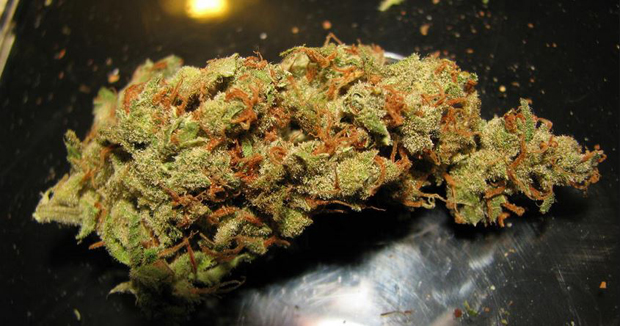

| Online: | |
| Visits: | |
| Stories: |

| Story Views | |
| Now: | |
| Last Hour: | |
| Last 24 Hours: | |
| Total: | |
5 Proven Reasons Why Every Adult Should Consume Cannabis Before Bed
Follow TIS on Twitter: @Truth_is_Scary & Like TIS of Facebook- facebook.com/TruthisScary

It’s common for people to use marijuana before bed time, whether out of habit or necessity. Now, research on marijuana and sleep helps explain why.
Besides easing insomnia, marijuana seems to have a wide range of effects on sleep.
This is because chemicals in marijuana, known as cannabinoids, actually mimic the activity of chemicals found naturally in the brain.
These chemicals and their biological pathways make up the body’s endocannabinoid system, which is responsible for regulating sleep, among other things.
Likewise, research shows that marijuana can also have a direct impact on sleep. Here’s 5 of the most important effects that studies have identified so far.
1. Easier Falling Asleep
In a small study published in 1973, THC reduced the time it took for 9 subjects with insomnia to fall asleep by over an hour on average. However, the researchers noted that too high of a dose could counteract the effect.
THC was also found to ease falling asleep in a 2013 study involving healthy subjects.
2. Longer Sleep
Early studies also revealed that taking either THC or CBD before bed could lead to an increase in overall sleep. In one study, increasing the dose of THC also increased the amount of time spent sleeping.
However, higher doses of THC also caused a “hang over” feeling in some subjects when they woke up, while the feeling was not present at lower doses.
3. More Deep Sleep
Some of the more interesting effects of marijuana on sleep involve its impact on the sleep cycle. Studies show that THC can increase the amount of slow-wave sleep, also known as deep sleep, that an user experiences during their slumber.
This is likely a good thing, since deep sleep is believed to play a major role in the restoration process that occurs during sleep.
What’s more, experts believe that the most damaging effects of sleep deprivation result from a lack of slow-wave sleep. For example, research has shown that reduced slow-wave sleep can be a strong predictor of high blood pressure in older men.
Source: http://truthisscary.com/2016/01/5-proven-reasons-why-every-adult-should-consume-cannabis-before-bed/


